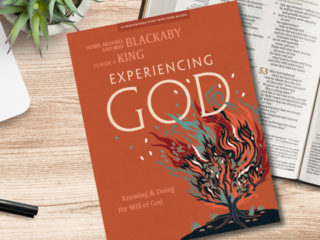Discipleship
Discipleship
Discipleship
Gain Wisdom for Everyday Life with this New Bible Study
Discipleship
Group Answers Episode 242: Agree or Disagree With Group Trends
Discipleship
New Bible Study Inspired by LIFEMARK
Discipleship
Group Answers Episode 241: Richard Blackaby on Experiencing God
Discipleship
Gather Around … Introducing Storyteller
Discipleship
Group Answers Episode 240: Why Scope and Sequence Matters with Curriculum
Discipleship
Some studies help you know the Bible. This one helps you know the Author.
Discipleship









